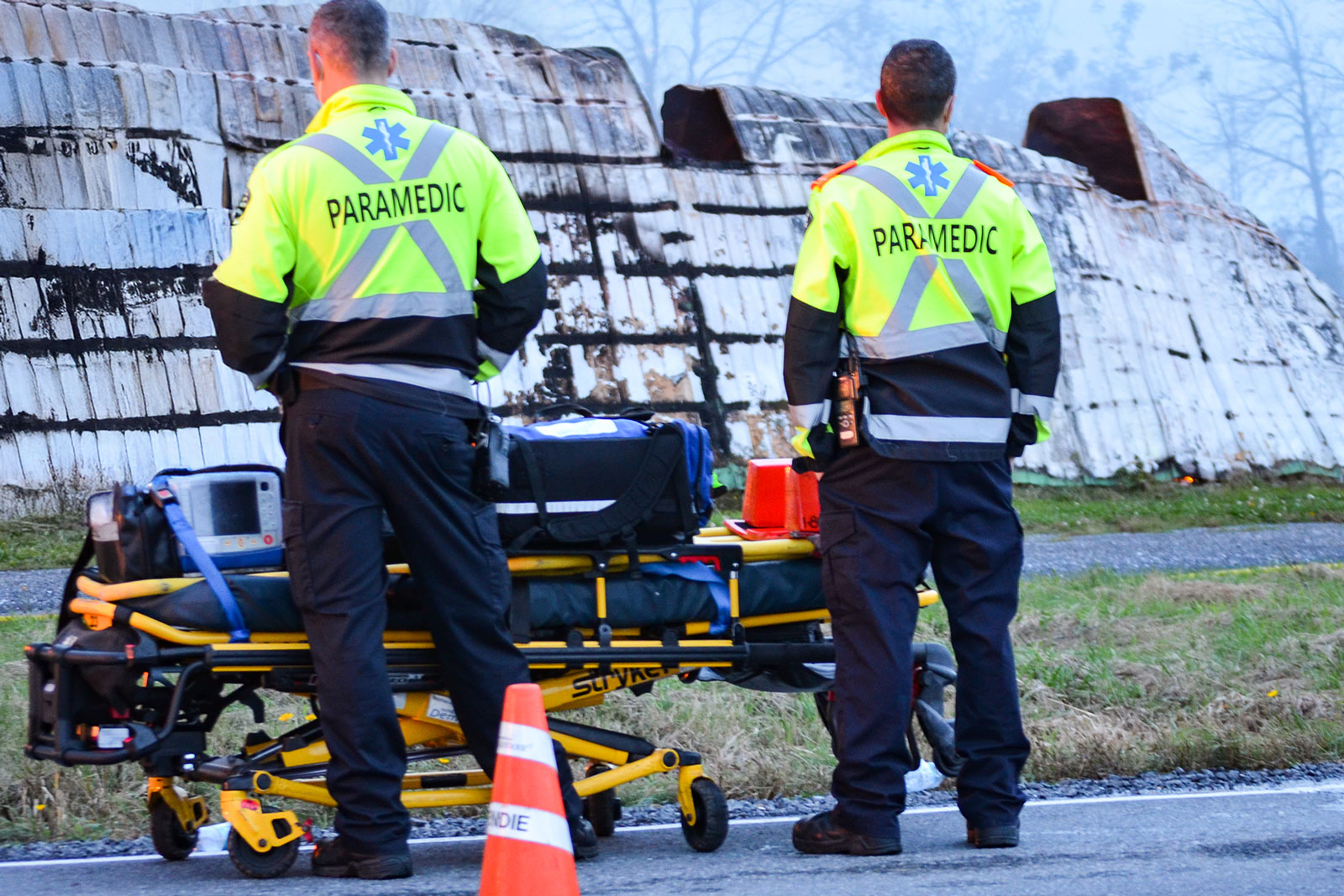Crisis Resources for Public Safety Personnel
Access to crisis support—through peers, professionals, and confidential helplines—is essential for Public Safety Personnel and their families to manage the emotional toll of trauma and maintain long-term mental wellness.
For public safety personnel and their families, the high-stress nature of the job, coupled with frequent exposure to trauma, can contribute to mental health challenges such as anxiety, depression, substance use, and post-traumatic stress disorder (PTSD). Crisis support is an essential service that provides resources to help Public Safety Personnel (PSP) navigate these emotional and psychological challenges. Utilizing these resources not only helps manage the effects of trauma but also ensures the long-term health and effectiveness of those who serve in high-stress roles.
Peer Support
One of the most effective crisis resources is peer support. These programs are designed to connect PSP with colleagues who understand the unique challenges of the profession. Peer support can be invaluable in providing emotional relief, sharing coping strategies, and offering reassurance that you’re not alone in your experiences. For example, after a particularly traumatic call, reaching out to a peer support network allows you to debrief with someone who has likely faced similar situations. This connection can provide a sense of relief and help process complex emotions in a safe, non-judgmental environment.
Critical Incident Stress Management (CISM)
CISM is a crisis intervention technique used to help individuals process trauma shortly after an incident. CISM teams often facilitate debriefing sessions where responders can discuss their emotional reactions to the event, normalize their responses, and receive immediate psychological support. For example, following a tragic accident, a CISM debriefing session can help responders process intense emotions and reduce the impacts of stress or trauma. These sessions are typically offered shortly after the incident, ensuring that the emotional and physiological aftermath is addressed promptly.
Professional Mental Health Services
Mental health professionals who specialize in trauma-informed care, can provide long-term support to public safety personnel. These services offer personalized care, which can include therapy or counseling for stress, anxiety, depression, PTSD, substance use, or grief management. Engaging with a mental health professional can help you develop coping mechanisms and recovery strategies tailored to your specific needs. It can be important to know if your mental health provider or clinic offers crisis services, mental health professionals can be an essential resource in managing crises, however knowing if you have immediate access to services can help you plan for how to effectively manage crisis.
Confidential Support Lines
Confidential support lines are 24/7 helplines that provide mental health support specifically for individuals in high-stress professions, such as public safety personnel. These lines are staffed by professionals who understand the unique pressures faced by PSP nd offer anonymous, confidential services to ensure privacy.
When to Use Confidential Support Lines
Using a support line can be helpful in a variety of situations, including but not limited to:
Post-Incident Stress: After responding to a traumatic or high-stress call, such as a fatal accident or a violent crime, you might experience strong emotions, anxiety, or difficulty processing the event. A support line can help you manage these feelings and provide strategies to cope.
Signs of Mental Health Struggles: If you’re noticing signs of mental health issues—such as insomnia, hypervigilance, irritability, intrusive thoughts, or feelings of detachment—it’s important to seek help early before these symptoms escalate. If you or someone you know is having suicidal thoughts or is at risk of harming themselves, calling a crisis line can be an invaluable resource.
Burnout and Fatigue: The demands of the job can lead to burnout, emotional exhaustion, and compassion fatigue. If you’re feeling physically or mentally drained, a support line can provide coping tools and guidance for restoring balance.
Personal Crisis: Sometimes personal issues, such as relationship difficulties, grief, or life transitions, can impact your mental health and work performance. Confidential support lines offer a confidential space to discuss these issues.
Preventative Care: Even if you’re not currently in crisis, confidential support lines are valuable for maintaining mental wellness. If you need strategies for stress management or emotional resilience, they can help prevent acute issues from developing into larger concerns.
How to Use Confidential Support Lines
Call or Text the Helpline: The first step is to reach out. Many support lines are available 24/7, and all you need to do is pick up the phone or send a text. You can usually expect to speak with a trained mental health professional or a peer support worker who will listen to your concerns and provide guidance. Some services offer text-based support for those who prefer not to speak on the phone.
Share What You’re Comfortable With: These support lines are confidential, meaning the conversation you have is private. You don’t have to share more than you’re comfortable with, but it’s helpful to provide enough information for the counselor to offer appropriate advice or referrals. You can talk about what’s troubling you, from day-to-day stress to more specific traumatic incidents.
Access Immediate Help: If you’re experiencing an emotional crisis or a mental health emergency, the support line will guide you through the process of managing your immediate emotions and may help connect you with additional services such as crisis teams, referrals to therapists, or long-term treatment options.
Follow Up as Needed: If the support line connects you with ongoing care (such as therapy or counseling), be sure to follow through with those appointments. Many lines will also offer additional check-ins or provide you with resources for continued support.
Resources for Confidential Support Lines in Ontario
Here are some confidential support lines available specifically for public safety personnel in Ontario:
First Responder Support Line (Ontario)
Phone: 1-866-277-6779
Available 24/7 for confidential, immediate mental health support for public safety personnel, including police officers, firefighters, paramedics, and their families.
The service offers emotional support, crisis intervention, and referrals to mental health professionals.
How to Use: Call anytime you need someone to talk to or if you're struggling with the effects of trauma or stress. The line is also available for family members who may be affected by your experiences.
Boots on the Ground Helpline
Phone: 1-833-677-7707
24/7 support to first responders in Ontario
It provides immediate peer support from trained responders who understand the unique challenges of the job. It was created for first responders, by first responders.
988 Suicide and Crisis Lifeline:
24/7 Availability: The 988 helpline is available 24 hours a day, 7 days a week, ensuring that help is always accessible, no matter the time of day or night.
Confidential and Free: All calls and texts are confidential and free of charge, offering a safe space for individuals to talk about their feelings or mental health concerns without fear of judgment or repercussions.
Crisis Intervention: The 988 lifeline provides immediate, professional support for those experiencing a mental health crisis, including thoughts of suicide, anxiety, depression, or emotional overwhelm.
Trained Crisis Counselors: When you call or text 988, you will relate to trained counselors who specialize in crisis management and mental health support. They will listen to your concerns, help you manage the immediate crisis, and guide you through the next steps.
Referral to Additional Services: If necessary, the helpline can connect you with local mental health professionals, emergency services, or long-term support resources.
Confidential support lines are a valuable resource for public safety personnel who may experience stress, trauma, or emotional challenges due to the nature of their work. Whether you’re in immediate distress or simply need to talk, reaching out for help can make a significant difference. Don’t hesitate to use these resources—help is available when you need it.
Local Emergency Room
If ever you are in crisis and feel you are at imminent risk of harming yourself or others, please visit your nearest emergency room or call 911 for urgent assistance.
References
Boots on the Ground Helpline. (n.d.). Boots on the Ground: Peer support and mental health resources for first responders. Retrieved May 6, 2025, from https://www.bootsontheground.ca
Canadian Mental Health Association. (2020). First responders and mental health: Understanding and supporting public safety personnel. CMHA. Retrieved from https://cmha.ca
Canadian Institute for Public Safety Research and Treatment. (2020). First responders and PTSD in Canada: A national survey. Canadian Institute for Public Safety Research and Treatment.
988 Suicide and Crisis Lifeline. (2022). 988 Suicide and Crisis Lifeline: Providing 24/7 support. Retrieved May 6, 2025, from https://988lifeline.org
.png)
.png)
.png)
.png)
.png)
.png)



.jfif)












